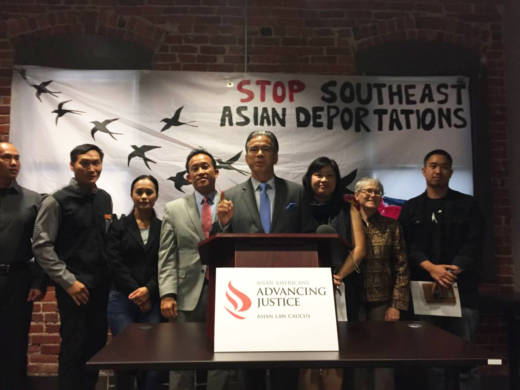Asian-American state lawmakers, along with immigrant and civil rights advocates, are urging Gov. Jerry Brown to immediately pardon dozens of Southeast Asian refugees facing deportation.
This group of refugees — mostly from Cambodia — are permanent legal residents, and most have lived in the U.S. since they were children. But in past years they were convicted of crimes, some of them gang-related. Because of that, immigration authorities have stripped them of their legal immigration status.
The refugees seeking pardons have been detained by U.S. Immigration and Customs Enforcement (ICE) and could be deported before the end of the year.
Advocates are turning to the governor because if the criminal convictions are pardoned, the refugees could reopen their cases in immigration court and fight deportation.
East Bay Assemblyman Rob Bonta, who joined the call for Brown to intercede, said these longtime California residents have served their time and are now fully rehabilitated and contributing to society. And he condemned ICE for targeting the refugees, which he says is part of a broader hostility of the Trump administration toward immigrants.
